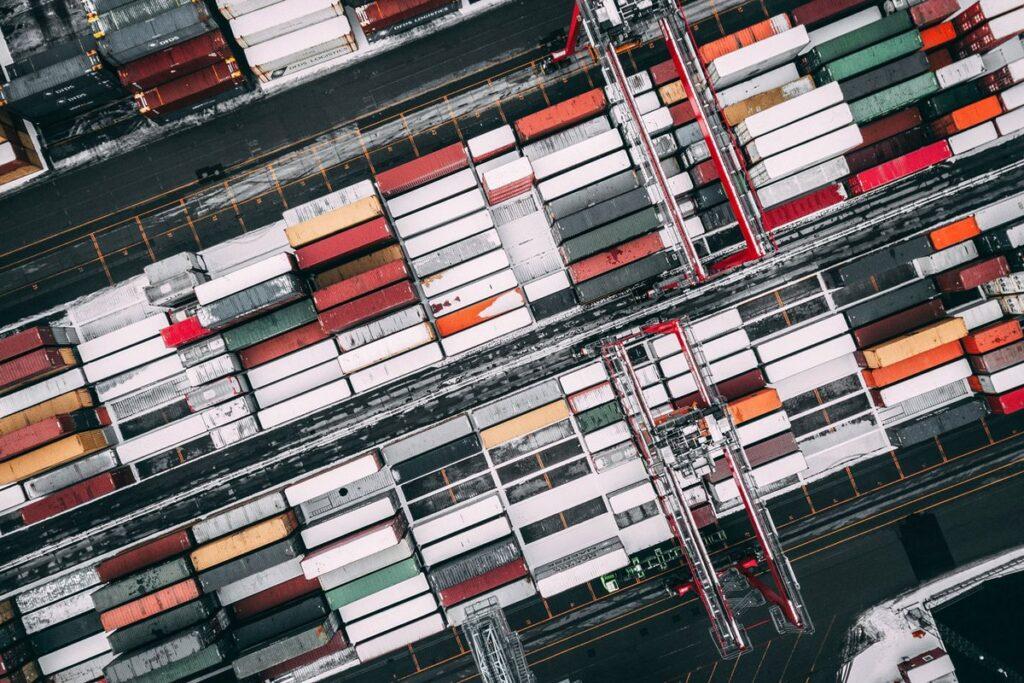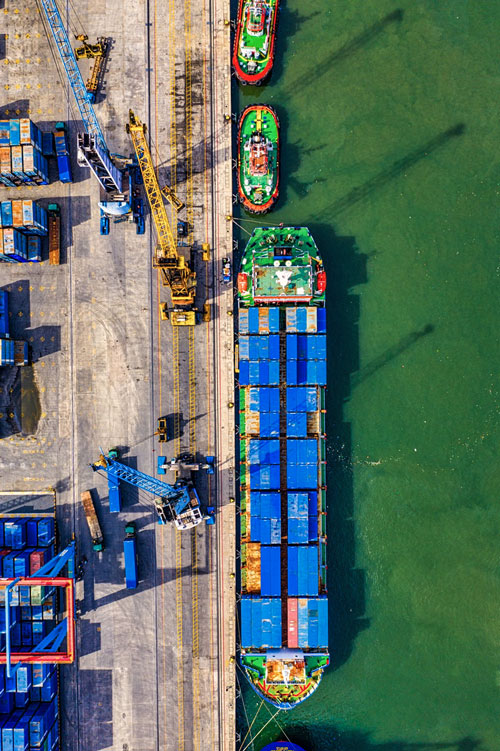Authors: Céline Charveriat, Marianne Kettunen

Despite new and promising announcements by the Trade Commissioner-designate Phil Hogan, the EU is struggling to turn words and good intentions into effective actions when it comes to using trade as a vehicle for sustainability.
The new European Commission needs to harness the opportunity of the Green Deal to signal a new direction in its trade sustainability strategy.
To date, there is scant evidence to show that the EU’s Free Trade Agreements (FTAs), which include a sustainable development chapter, are fulfilling their promise to reduce the trade expansions’ negative impacts on the environment. This might be because – in policy-implementation terms – it is still early days for these provisions to deliver a practical impact. However, both the European Commission and the wider groups of stakeholders recognise that actions need to be accelerated.
| The European Commission and the wider groups of stakeholders recognise that actions need to be accelerated |
Europe’s recent promise not to sign trade agreements with countries that are not implementing the Paris agreement is also promising. Yet so far this intention is not translating into action. In fact, the European Union recently attempted to reopen trade negotiations with the US, despite President Trump’s intention to leave the Paris agreement.
It is also telling that Ignácio Ybáñez, the EU’s ambassador to Brazil, said that the EU MERCOSUR would be unaffected by the Amazon fires and that the issue at stake was simply to inform parliaments adequately. This reaction seemed to suggest that those opposing the deal were simply badly informed.
Yet, there is plenty of evidence regarding the impact of trade on deforestation. According to SEI, Europe and China are the biggest consumer regions linked to tropical deforestation emissions. During the period 2010-2014, imported deforestation accounted for around a sixth of the carbon footprint of the average diet in the European Union.
| The EU is making more efforts to harness trade for sustainability than other major trading partners |
Furthermore, the official interim sustainability impact assessment of the agreement, a key tool for informing the democratic debate, has not even been finalised and provides, so far, no conclusions on the deforestation impact.
This is not to say Europe is not doing anything in the trade and sustainability space – far from it. In fact, the European Union is making more efforts to harness trade for sustainability than other major trading partners. However, all the efforts to date appear dwarfed by global trends. For instance, emissions linked to international transport, including trade-related transport, are expected to continue to rise.
Emissions from international shipping could grow between 50% and 250% by 2050, mainly due to the growth of the world maritime trade, while aviation emissions could increase by a further 300-700 % during the same period.
Current plans by the International Maritime Organisation (IMO) and the International Civil Aviation Organization (ICAO) do not provide credible pathways for the two sectors’ carbon neutrality by 2050. Instead, they rely on technologies that are nowhere near ready and imply using biomass in a way that is incompatible with planetary boundaries.
 |
Are trade defences a solution?
An interesting development has been the promise made by Ursula von der Leyen to introduce border tax measures. Trade Commissioner-designate Phil Hogan also hinted at an increase in trade defence strategies. The environmental pros and cons of such trade measures must be, however, weighed carefully.
Trade defence measures have been historically adopted to protect declining industries, rather than to drive sustainability. Protecting struggling carbon-intensive industries against foreign competition, such as cement and steel, will not reach environmental objectives by default.
In fact, it will be interpreted by trade partners as a protectionist move, especially if free allowances in the EU’s Emissions Trading System (ETS) are not phased out and if a credible trajectory for carbon neutrality for Europe’s heavy industries is not underway.
Similarly, the methodology used for the calculation of border tax measures would matter enormously for WTO compatibility. In terms of other trade defence measures, some recent cases launched by the European Union have little to do with sustainability. Their aim is instead to promote exports of European products with high environmental footprint (from steel and cars to frozen French fries) or simply focused on securing unfettered access to scarce resources rather than their preservation (2014 rare earth case).
Towards sustainable trade 2.0?
Beyond greening trade defence measures, a more ambitious and sustainability-driven trade agenda would require for Europe to take new initiatives, both domestically and internationally.
| Unilateralism should not be shied upon, but plurilateralism would get us further |
Europe’s ability to set standards internationally through its procurement- and consumption-oriented internal policies has helped to transform the global chemical and automotive sectors through its chemical (REACH) and automotive (EURO IV) standards. Europe could similarly take the lead in setting new sustainability standards across a range of traded commodities and services. Unilateralism should not be shied upon, but plurilateralism would get us further. Finding a coalition of the willing to move further with environmentally oriented standards should be a priority for our trade diplomacy, starting with circular economy standards.
Europe also urgently needs to reform its own agricultural subsidies, to make sure that no elements of trade are climate-distorting or environmentally harmful. Promoting the exports and consumption of carbon-intensive agriculture products, such as livestock, through trade agreements, should no longer feature high on Europe’s agenda. A Farm to Fork strategy, which would initiate such transformation, would be a strong signal for the rest of the world that Europe is serious about achieving net carbon neutrality. Similarly, Europe should take greater leadership in removing all direct and indirect subsidies to fossil fuels and use trade agreements to promote low-carbon, resource-efficient technologies, and ensure their affordability and take-up in developing countries.
A third challenge should be to ensure that the EU’s trade agenda with Africa is climate and biodiversity-proofed. So far, it is striking to see how little reference there is to environmental sustainability in the proposed Africa-Europe Alliance for Sustainable Investment and Jobs. Given Africa’s population growth and socioeconomic vulnerability to climate change and environmental degradation, the continent will face unparalleled challenges in terms of reaching SDGs without destroying nature. Europe should not only do this because it is part of its SDG obligations, but also because a significant share of global competition for natural resources will be played out on the African continent, intensifying given trends around demand for non-renewable and renewable natural resources worldwide.
Let’s not confuse symptoms and the cause
| It would be foolish to think that trade policy is the silver bullet for delivering sustainability |
While much needs to be done through trade policy, it would be foolish to think that trade policy is the silver bullet for delivering sustainability. With Black Friday just around the corner, it should be recognised that trade is the symptom of a much larger challenge: a growth model based on the exploitation of natural resources and mass consumption. If everyone around the world were to consume like Europeans, we would need three planets’ worth of natural resources by 2050.
To truly do its fair share for sustainability, Europe should reduce its per capita material footprint by 80% by 2050. This more fundamental transformation, going beyond trade, will require new regulations and policies to make sure all products sold on the European market – whether produced domestically or abroad – are sustainable. It also demands the political courage to start talking about sufficiency, work-life balance and well-being instead of mass consumption and productivism.
Therefore, Europe’s Green Deal should aim at taking “the path less travelled” by tackling both the symptoms and the cause. This will require ambitious domestic structural reforms and a much more ambitious approach to greening the EU ’s trade policy.
Other references
European Parliament (2019). ‘ICAO Agreement on CO2 emissions from aviation‘.
European Commission (2019). ‘European Commission publishes draft interim Sustainability Impact Assessment report for the EU-Mercosur Association Agreement‘.
